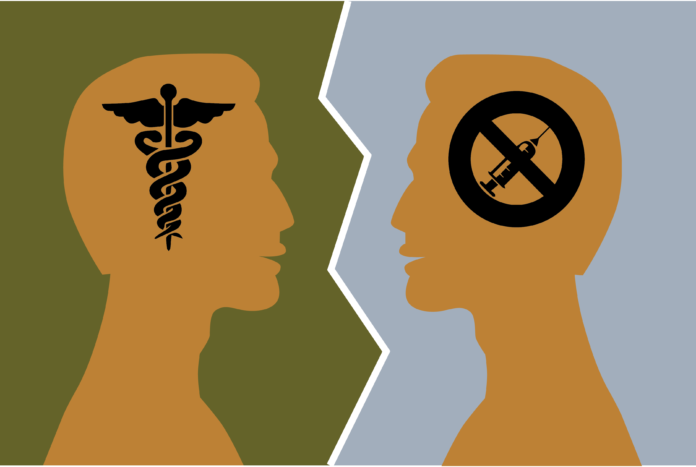UC Davis study shows empathy may not always be perceived as a merit
Empathy often has the connotation of being a universal good, but is this truly how society perceives it? A recent UC Davis study led by Y. Andre Wang, a Ph.D. candidate in psychology, revealed that empathy may not always be seen as a virtue.
“Empathy in the public discourse has become a stand-in for ‘desirable personal qualities,'” Wang said via email. “We have this idea that someone with empathy is by default a good person. But empathy can be biased.”
Chris Hopwood, a professor in the department of psychology, stated that the psychological definition of empathy is feeling and thinking the same way another person feels and thinks. In his experience as an instructor and therapy supervisor, many people who think they are empathetic may be mistaking their feelings of sympathy for empathy.
“Empathy is quite different [from] sympathy, in which a psychological distance remains—in sympathy, you feel or think about someone in an unfortunate circumstance, usually with a kind of benevolent judgment,” Hopwood said via email. “In empathy, you are right there with them.”
In the experiment conducted by Wang’s team, they showed participants various scenarios where an individual was sharing a personal experience, either positive or negative, with another individual who expressed either neutrality or empathy toward the statement. The participants would then rate their impression of how the latter individual responded, along with how warm they perceived this individual to be. Another important component of this experiment was whether the individual sharing their experience was portrayed either negatively or positively. Wang explained that in some cases the individual was a white nationalist, whereas in others, the individual would be a healthcare worker at a children’s hospital.
“What we found is that this portrayal mattered for their impressions of the empathizer,” Wang said. “Participants liked and respected the empathizer, but only when the character receiving empathy was liked as well. When the character was disliked (as a White nationalist or an “anti-vaxxer”), participants did not like and respect the empathizer as much, even though they still viewed the empathizer as warm and caring.”
Wang also stated that in some cases, participants would rather have the individual condemned than empathize with them. These results parallel Wang’s initial motivation for conducting this study. Wang explained that he came across a profile by The New York Times, where he noticed that the author was receiving a lot of criticism for taking an empathetic approach in understanding a white nationalist’s point of view. A controversy ensued when some readers wanted the journalist to condemn the individual, while others praised him for his humanity, leading Wang to look deeper into the subject.
“To me, this controversy illustrates the complex nature of people’s evaluations of empathy and empathizers, and it suggests the possibility that who receives empathy matters for these evaluations,” Wang said.
It’s because of this that Wang believes empathy is not always a good, moral quality that all people should have. In fact, Hopwood also described how logic, rather than empathy, should be called for when making moral decisions. Wang added that, especially now with the pandemic and election season, empathy is widely praised or called for. One of these instances is when presidential candidate supporters highlight their preferred candidate’s empathetic character. Kimberley Elsbach, a professor of management at the Graduate School of Management, explained that empathy is a critical component of benevolence, which is one of the three pillars in Roger Mayer’s Three Pillars of Trust, in addition to integrity and competence.
“Benevolence is about looking out for others,” Elsbach said. “It’s about perhaps even forgoing one’s own desires and goals in favor of supporting others and helping them with their goals, so maybe even doing something that might not be in one’s personal best interest if it’s in the interest of others. In order to express benevolence or to even understand what that means, one has to be able to experience empathy.”
Elsbach explained that if one has a difficult time demonstrating empathy, this will negatively impact their expression of benevolence and therefore trustworthiness. Although she has not experienced the phenomenon described in Wang’s study, Elsbach considered the possibility that if one shows empathy toward an unfavorable group, the general public may reason that the individual must be similar to the group.
Although Wang’s study didn’t focus on the context of the pandemic or the election, he stated that the results may apply to the public opinions of political leaders who show empathy. The real-world applications of his study are still yet to be observed, and it is still unclear whether people are more likely to vote for someone who empathizes with an individual they may like or dislike.
“Empathy is valuable and has great potential to improve our lives,” Wang said. “But it is not a panacea, and people do not necessarily consider it a ‘universal good.’ In a time where empathy is touted as a solution to many social ills and empathy training is becoming a booming industry, I think it is worth thinking critically about what empathy does, and who tends to receive empathy.”
Written by: Michelle Wong — science@theaggie.org




